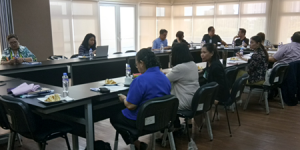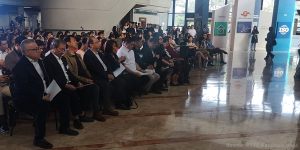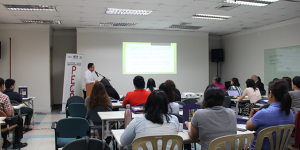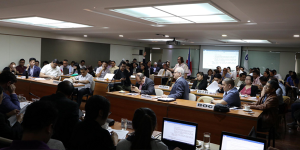
The Philippine Ports Authority (PPA), Bureau of Customs (BOC), Association of International Shipping Lines, port operators Asian Terminals Inc. (ATI) and International Container Terminal Services, Inc. (ICTSI) collaborated and issued a Manifesto of Support last 15 March 2019 for Government’s Effort to ease the problem of overstaying containers and make Philippine ports efficient.
Under the manifesto, PPA issued a directive to all importers, consignees, owners, and shippers of containers already cleared by the BOC to withdraw said containers within fifteen (15) days. Failure to comply with the directive will lead to the transfer of Customs-cleared containers to designated inland container depots of ATI and ICTSI. The cost of transfer will be shouldered by the cargo owners, shippers, consignees, logistics operators, or customs brokers.
For port operators, ATI and ICTSI will regularly provide government with information on the status of utilization of their ports, as well as information on containers staying inside their terminals for at least 30 days since arrival.
Foreign shipping lines are required to promptly evacuate empty containers, either by regular ship calls or sweeper vessels, from the Philippines within the period prescribed by the BOC.
BOC, in the meantime, will regularly dispose of seized or abandoned containers to maintain efficient utilization of Manila South Harbor and MICT. (MJAA)

 Effective this year, exporters of products under the European Union (EU) Generalized System of Preference (GSP) – are required to be registered to the Registered Exporters System (REX).
Effective this year, exporters of products under the European Union (EU) Generalized System of Preference (GSP) – are required to be registered to the Registered Exporters System (REX). The Philippine Trade Training Center (PTTC) recently embraced its new role as the hub for Filipino innovators to produce “smarter” entrepreneurs through the soft launch of the Philippine Global MSME Academy. Moreover, a signing of a Memorandum of Agreement (MOA) between and among multi-stakeholder collaborators including the Department of Trade and Industry (DTI) and PTTC, Lead-More Development Inc., and other industry partners for the Integrated Center for Entrepreneurship (ICE) project was also done on 27 February 2019.
The Philippine Trade Training Center (PTTC) recently embraced its new role as the hub for Filipino innovators to produce “smarter” entrepreneurs through the soft launch of the Philippine Global MSME Academy. Moreover, a signing of a Memorandum of Agreement (MOA) between and among multi-stakeholder collaborators including the Department of Trade and Industry (DTI) and PTTC, Lead-More Development Inc., and other industry partners for the Integrated Center for Entrepreneurship (ICE) project was also done on 27 February 2019. Entities engaged in the transport of chemicals are reminded to double check and ensure compliance of the application requirements prior to submission to Commission on Elections (COMELEC) in securing the Certificate of Authority to Transport (CA-TT) chemicals. The completeness of documents submitted will lessen if not totally eliminate the chance of denial of application during the gun ban period.
Entities engaged in the transport of chemicals are reminded to double check and ensure compliance of the application requirements prior to submission to Commission on Elections (COMELEC) in securing the Certificate of Authority to Transport (CA-TT) chemicals. The completeness of documents submitted will lessen if not totally eliminate the chance of denial of application during the gun ban period. Department of Trade and Industry (DTI), Department of Transportation (DOTr), and Department of Finance (DOF) jointly presented the draft Joint Administrative Order (JAO) to concerned stakeholders. This aims to regulate the local charges imposed by international shipping lines and provide measures to address port congestion.
Department of Trade and Industry (DTI), Department of Transportation (DOTr), and Department of Finance (DOF) jointly presented the draft Joint Administrative Order (JAO) to concerned stakeholders. This aims to regulate the local charges imposed by international shipping lines and provide measures to address port congestion.

